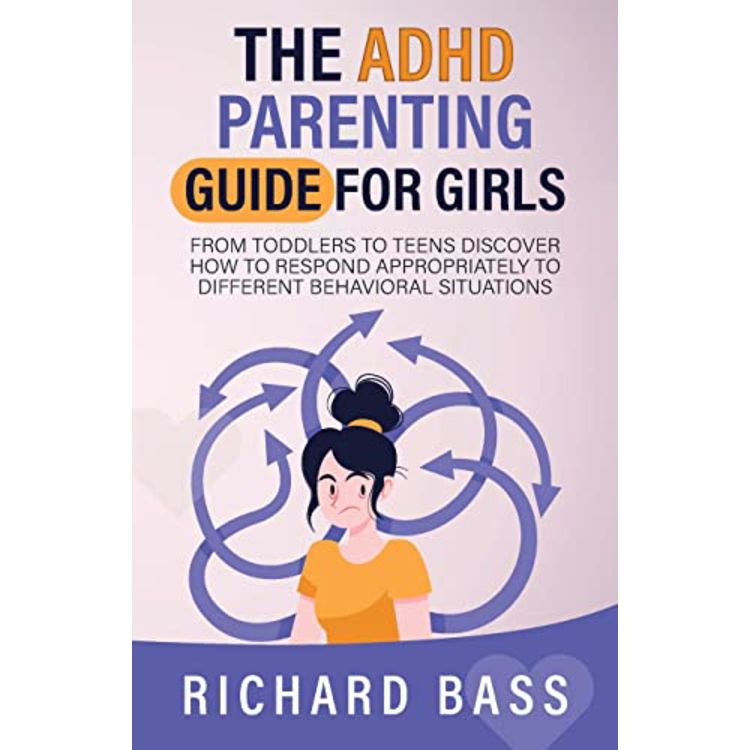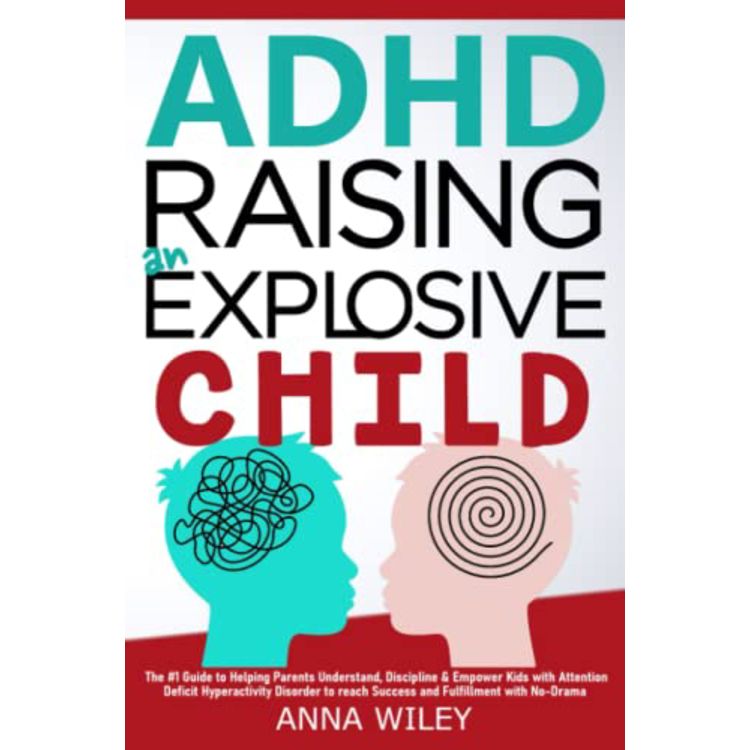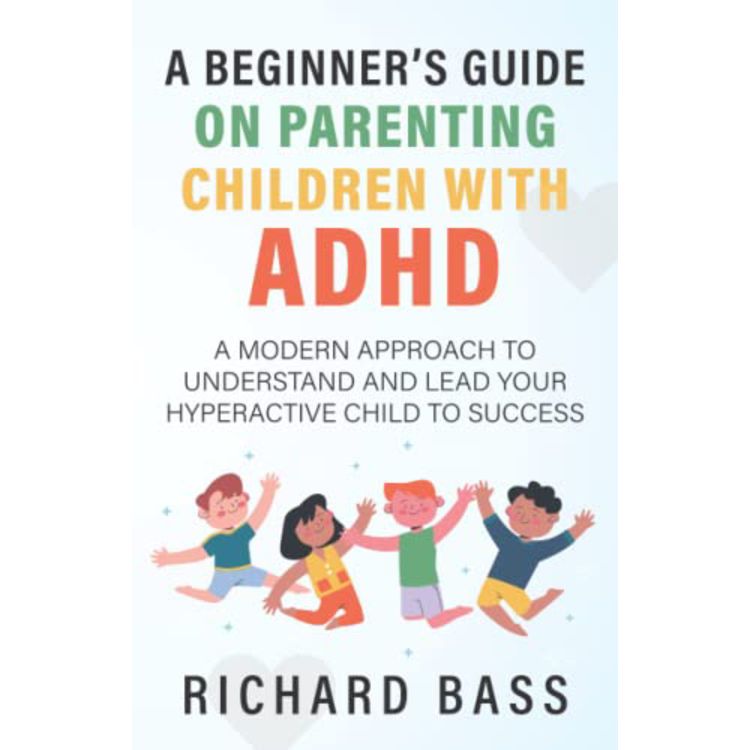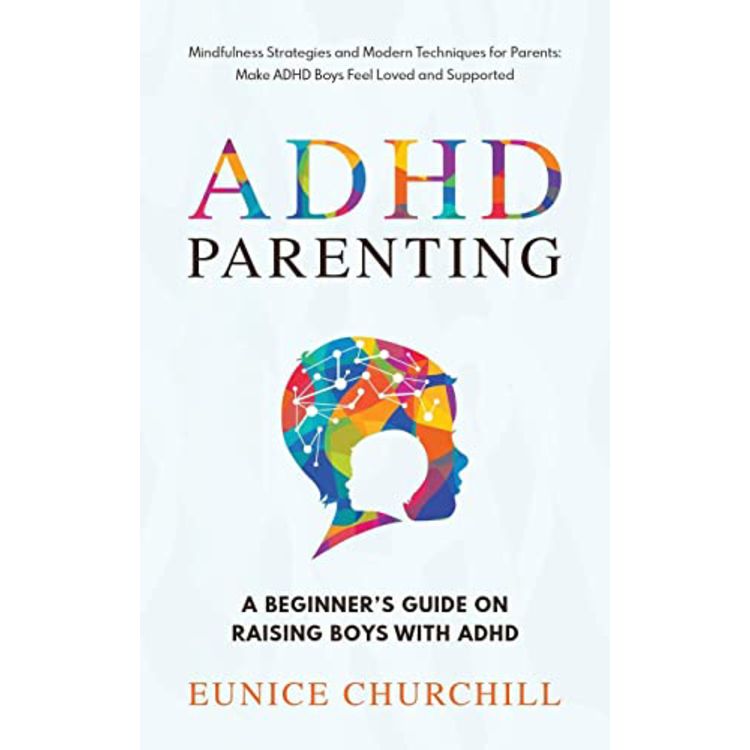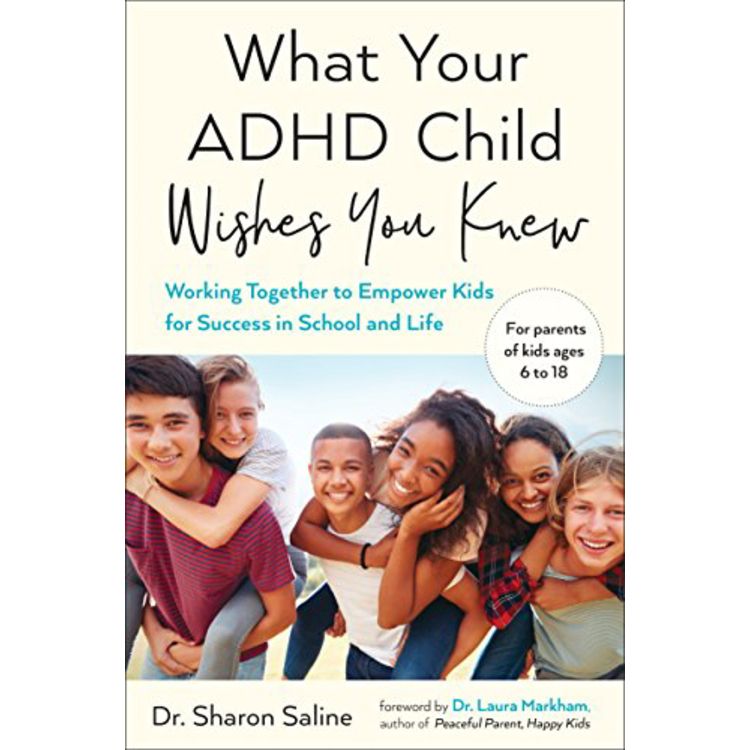The Best ADHD Books For Parents: How To Help Your Child Succeed
Discover the top books for parents of children with ADHD, and learn about how you can help your child succeed in school, work and life.
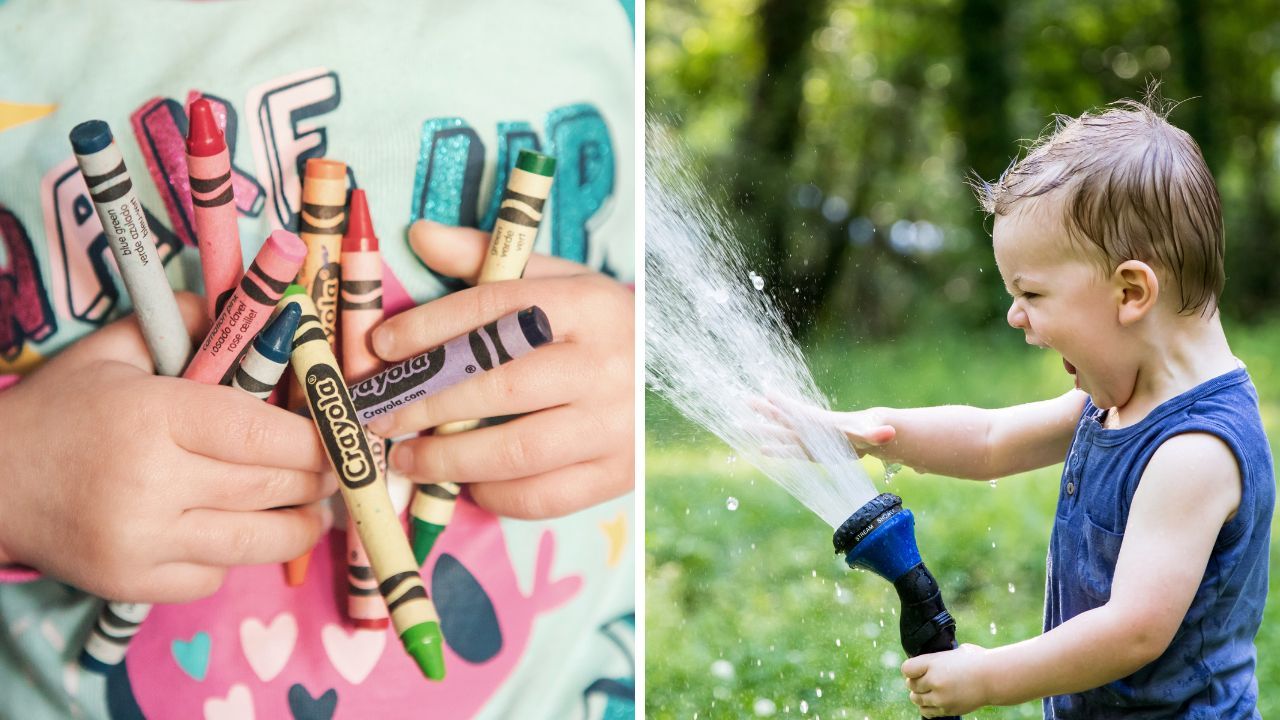
Are you a parent of a child with ADHD? You're not alone. More than 3 million children in the United States have been diagnosed with attention deficit hyperactivity disorder (ADHD), according to the National Institute of Mental Health (NIMH).
While ADHD can be difficult for both parents and children to manage, learning as much as possible about this condition is essential. That's where these best ADHD books for parents come in. These resources offer insights into everything from common symptoms and treatments to approaches for teachers, schools, and other caregivers. Some even address how siblings can cope with having an ADHD sibling at home.
If learning more about your child's condition is on your “to-do” list, one of these books might be just what you need to get started.
How We Found The Best ADHD Parenting Books
There are many reasons why you might be looking for a good ADHD book for parents. Maybe you or your child is diagnosed with ADHD, and you want to learn more about the condition. Or maybe you're just curious because one of your friends has an ADHD child.
Whatever your reason, we've got good news: there are plenty of excellent books on the subject! In fact, finding the best ones can be a challenge—there's no shortage of titles on Amazon when it comes to ADHD.
We surveyed dozens of options before narrowing our list down to only those considered truly outstanding by parents whose children have been diagnosed with ADHD themselves. We also looked at reader reviews to gauge real-world usage experience from those who have already purchased and read these titles.
What We Liked
The ADHD Parenting Guide for Girls is a resource designed to provide parents with practical strategies and tools to help their daughters navigate the challenges of attention deficit hyperactivity disorder (ADHD).
The guide offers insight into the unique struggles faced by girls, from self-image issues to navigating friendships and dating.
What You Should Know
It is important to note that not all individuals diagnosed with ADHD will exhibit symptoms in all areas of life.
However, it can be helpful for parents to have a resource available that provides an overview of common challenges and solutions.
This book can serve as a valuable tool in helping parents understand why their daughter may struggle with certain behaviors or why she may seem distant at times.
The guide also provides tips on how to approach topics such as body image, dating, and social situations, providing valuable insight into what other teens may experience.
What We Liked
Anna Wiley's "ADHD Raising an Explosive Child" is a thought-provoking and enlightening guide for parents who are struggling to understand their child's behavior and why they struggle with attention deficit hyperactivity disorder (ADHD).
This book offers valuable insight into the condition, how it affects individuals, and how it can be managed.
The author provides helpful tips on how to approach the subject with your child so that they feel understood and empowered.
It also discusses the benefits of having an ADHD child - showing them what they can achieve if they learn to manage their symptoms.
What You Should Know
This book is a great resource for anyone who wants to gain a better understanding of this common condition.
It will help you see things from your child's perspective, understand why certain behaviors may seem problematic or confusing, and appreciate the gifts that come with having an ADHD kid in your family.
What We Liked
The author of this guide, Richard Bass, has done extensive research on the topic of ADHD and has distilled his findings into a comprehensive guide for parents.
The book covers a wide range of topics, from understanding what ADHD is to strategies for managing behavior issues in public settings.
The author also provides helpful information about medications and alternative treatments.
What You Should Know
The book is divided into sections covering topics such as social skills, time management, and self-esteem. It's an easy read with lots of useful tips and tricks to help you raise a successful child with attention deficit hyperactivity disorder (ADHD).
This resource can be used by parents who have just been diagnosed or are already familiar with the condition but want to know more about how it affects their children.
It's a great starting point for anyone looking to gain knowledge on the topic in greater detail.
What We Liked
The book "ADHD: A Guide for Boys" by Eunice Churchill is a valuable resource for parents who are dealing with an ADHD child.
This guide offers practical advice and tips on how to support your son through his diagnosis and the challenges that come with it.
Dr. Churchill's book is packed full of useful information, including self-control and organization, getting jobs done, and making friends.
It also includes simple activities to help your child with the many aspects of ADHD, such as attention span and staying focused on tasks.
What You Should Know
As they cultivate their personal abilities, children will gain a newfound outlook on ADHD - gaining insight into themselves, their hyperactivity disorder (HDA), and the accessible measures they can take to feel more secure and in control.
This strength-based approach takes a positive approach towards having a stronger connection between mind and body - rather than focusing solely on the weaknesses that come along with having ADHD.
This book helps kids build effective interpersonal skills and cope with an ADHD diagnosis.
What We Liked
Dr. Sharon Saline's book "What Your ADHD Child Wished You Knew" is a teaches parents who are looking for strategies on how to help their child succeed in school and reach their academic goals.
This book focuses on parenting techniques to help with mental health and emotional regulation.
The book offers helpful tips on how to manage behavior, stay organized, and cope with everyday challenges.
This book is a treasured parent resource to help your kids with attention deficit disorder.
What You Should Know
The author shares her personal experiences as a psychologist working with young people and their families; this makes the book relatable and easy to connect with.
One of the things I appreciated about the book is that it provides practical strategies that really work.
By shifting the dynamic, parents can help their child achieve lasting change by working together rather than constantly pushing them.
Adhd Books For Parents FAQs
You want to do the best you can for your child, but there's a lot of conflicting information out there.
It seems like every day a new study comes out contradicting the last one. It's enough to make your head spin! How are you supposed to know who and what to believe? We've compiled some of the most Frequently Asked Questions about ADHD, as well as our top answers.
What parents can do for ADHD?
Parents of children with ADHD have a range of options that they can take to help their child manage the condition. The first step is to seek professional help and develop a treatment plan that takes into account the individual needs of your child. A combination of medication and behavioral therapy is often recommended in these cases, but each case is unique so flexibility in approaches may be needed. Additionally, parents should look for supportive programs, services or therapies that may be available for their child and family.
As a parent, there are several strategies you can employ to ensure success for your child. These include making sure their home environment is structured and consistent; providing emotional support when needed; setting clear expectations with achievable goals in mind; using positive reinforcement as an effective motivator. Highlight the strengths of each individual rather than focusing on weaknesses; coordinating school materials and routines along with teachers whenever possible, while limiting media time if they become easily distracted by technology.
Lastly, it’s important to remember that ADHD is not an indication of lack of intelligence or capability. It just means different neurology from the average person's brain wiring. With proper care and understanding, any person can learn ways to manage ADHD symptoms/behaviors successfully!
How can I help my child with ADHD book?
Working with children who suffer from Attention Deficit Hyperactivity Disorder (ADHD) can be a challenging but rewarding experience. There are several steps that parents can take to help their child with ADHD succeed in reading, writing and learning.
First, it is important to create an environment that is conducive to studying and learning. This includes having a dedicated area for your child’s books, supplies, and activities that is free from distractions such as television or video games. You should also set realistic expectations for completing tasks, as well as providing positive reinforcement for the successes your child has in school or at home.
Make sure your child gets enough sleep each night so they can focus better throughout the day. Research shows that a good night’s sleep helps improve cognitive functioning in children suffering from ADHD symptoms. If necessary, you may need to speak with teachers about adjusting homework assignments accordingly so your child isn't overwhelmed by too much work at once.
What does ADHD look like in parenting?
Parenting children with ADHD can be a challenging and demanding task. It can often feel like you are facing an uphill battle, trying to manage the daily struggles associated with your child’s condition. While managing ADHD in parenting is indeed a challenge, there are strategies that parents can use to help support their children and make day-to-day life easier.
ADD/ADHD presents itself differently in each individual; however, some common signs of it include difficulty staying on task, procrastination, impulsive behavior, emotional outbursts. Self-esteem issues stemming from not being able to complete tasks on time or because of feeling overwhelmed by them.
In order for parents to successfully navigate parenting someone with ADD/ADHD it is important that they have realistic expectations and take steps to understand their child’s needs better. Having a clear understanding of your child’s strengths and weaknesses regarding different tasks will enable you to set achievable goals that are tailored specifically for your child’s abilities and limitations. Additionally, providing positive reinforcement when good behaviors occur is essential in helping shape long term habits within these areas.
Parents should also work closely with teachers and other professionals who specialize in dealing with ADHD so as create an effective support system which facilitates each person involved having a better understanding of how best address the issues being faced by both the parent(s) and the student.
What parents should learn about ADHD?
Attention Deficit Hyperactivity Disorder (ADHD) is a disorder that affects children and adults of all ages. It’s characterized by difficulty focusing, impulsivity, hyperactivity, and inattentiveness to detail. As a parent of a child with ADHD, it’s important for you to understand the basics about the disorder so that you can provide your child with the best possible care.
First off, know that ADHD isn't something that goes away as your child gets older - it's something they'll have to manage throughout their lives. In order to help them live their life to the fullest potential, parents should make sure they research techniques for managing ADHD symptoms and behaviors such as talking therapy or medication management. Additionally seek out resources like support groups or specialized medical professionals who specialize in diagnosing and treating ADHD specifically.
It's also important for parents to be aware of how different environments can affect an individual with ADHD differently - often negative situations such as chaos within the home may cause increased agitation in someone with this condition which can then lead to other behavioral issues in some cases if not managed appropriately.. Remember too not only focus on symptom management but also encourage positive behaviors such as discouraging screen time when appropriate and providing healthy outlets for self-expression including art or music programs; these activities are great ways for individuals living with this condition to channel their energy productively!
At times stress can become overwhelming for both parent and child - having strategies available like deep breathing exercises or mindfulness meditation may help create more peace within the home environment at times when things feel especially challenging! Overall being proactive rather than reactive makes all the difference so do your best stay informed on all aspects related to ADHD while keeping communication open between yourself & your doctor/healthcare provider(s).
Do books help with ADHD?
Absolutely! Books can be an invaluable tool to help manage ADHD. By reading and understanding new information, individuals with ADHD can stay focused on tasks for longer periods of time and gain a better understanding of different perspectives. Reading also helps increase concentration by taking the reader’s mind away from distractions.
Additionally, research has found that reading activates areas in the brain involved in learning, decision-making, problem solving and emotions regulation - all quite important when managing ADHD symptoms. Furthermore, books provide valuable models of behavior which can help teach children with ADHD how to process their environment differently and make better decisions while regulating their own emotions.
ADHD kids struggle with an overactive imagination and reading a book that takes them to far off lands is a good way to help children thrive. Dads and Moms raising kids can help with mindful parenting and offer helpful coping tools.
Can you be a good parent with ADHD?
Absolutely! Many parents experience challenges due to the fact that they have ADHD, but these same challenges can also be seen as unique opportunities to parent from a different perspective. Parents ADHD have the ability to look at problems from a different angle and often times can find creative solutions that other parents may not consider.
For example, an individual with higher rates of impulsivity may need to take extra precautions in order for their children not to get hurt during physical activities or playtime. On the other hand, those same qualities of impulsivity could be used as an advantage during creativity time with kids where ideas flow more freely over short bursts of time; something someone without ADHD on average might miss out on.
At the end of the day, it is important for all parents focus on being present and loving in raising their children by providing unconditional love and support. Understanding your own limits as well as taking reasonable steps such as developing routines and getting help when needed are just some strategies you can use in order to address any issues resulting from having this condition while still remaining a great parent throughout life's journey!
What is sensory processing disorder?
Sensory Processing Disorder (SPD) is a neurological disorder that affects how an individual processes sensory information from the environment and their bodies.
It is not a single condition, but instead, there are various subtypes of SPD. These can range from difficulty understanding, filtering and reacting to certain tactile or auditory stimuli to difficulty with two-point discrimination tasks to difficulties understanding where one’s body parts are in space or feeling overwhelmed by everyday items such as clothing tags or noise levels.
Although it is often confused with autism spectrum disorders, SPD is its own distinct diagnosis; people diagnosed with Autism may also have SPD due to similar underlying issues related to processing sensory inputs. The good news is that there are effective treatments for individuals suffering from SPD which include physical therapy, occupational therapy and sensory integration therapy, among others.
The Best Books For Parenting ADHD Children
The best ADHD books for parents offer a wealth of information about the disorder, ways to help their child at home and tips for managing schoolwork. They can also educate themselves about related topics such as special education laws and helpful strategies for parenting an ADHD child. By reading these books, parents can not only better understand their child's struggles but also gain insight into how they can help their son or daughter succeed in school and beyond. Ultimately, these books can provide invaluable guidance that will help parents support their child with ADHD in a way that is both compassionate and effective.







